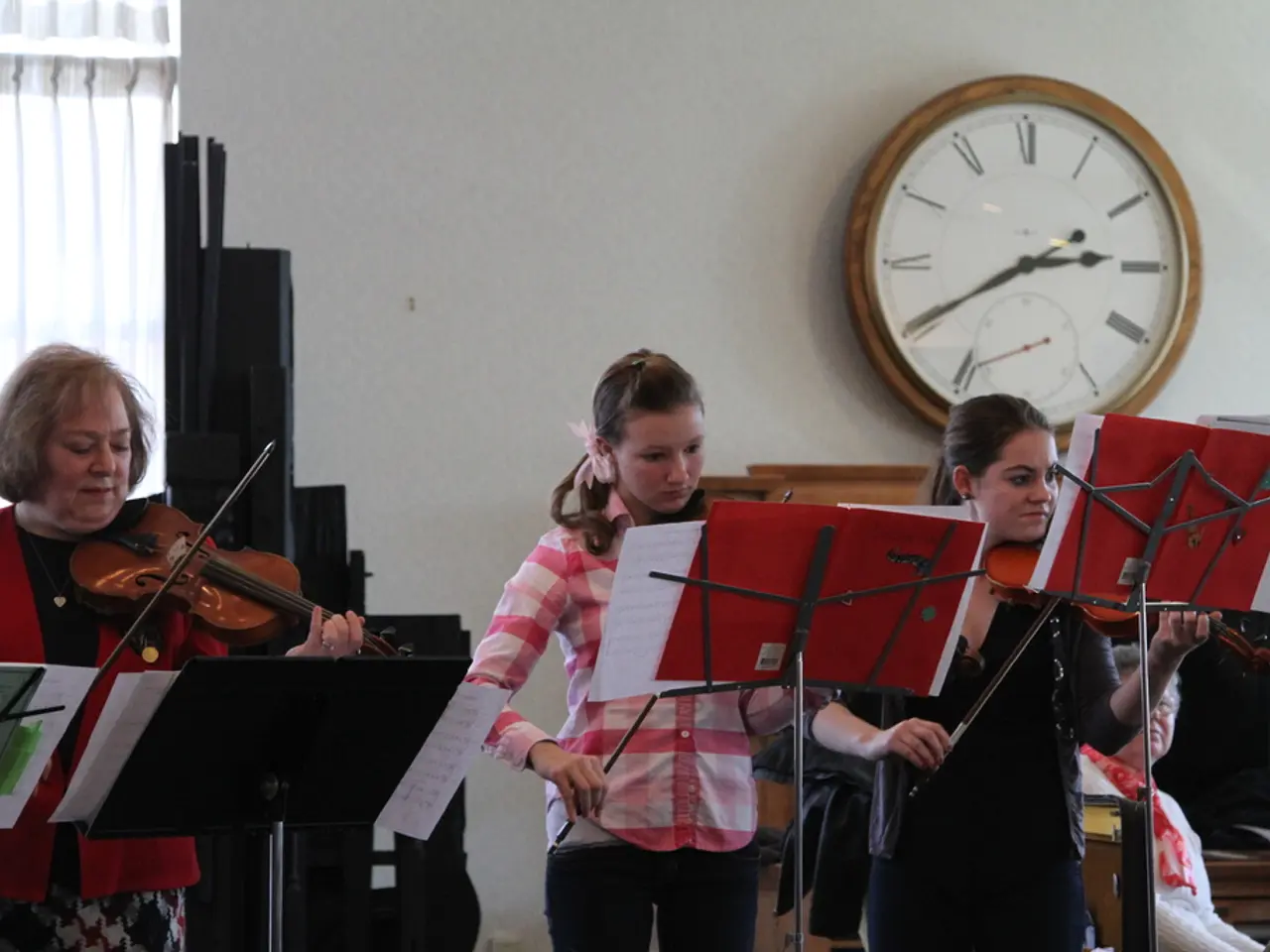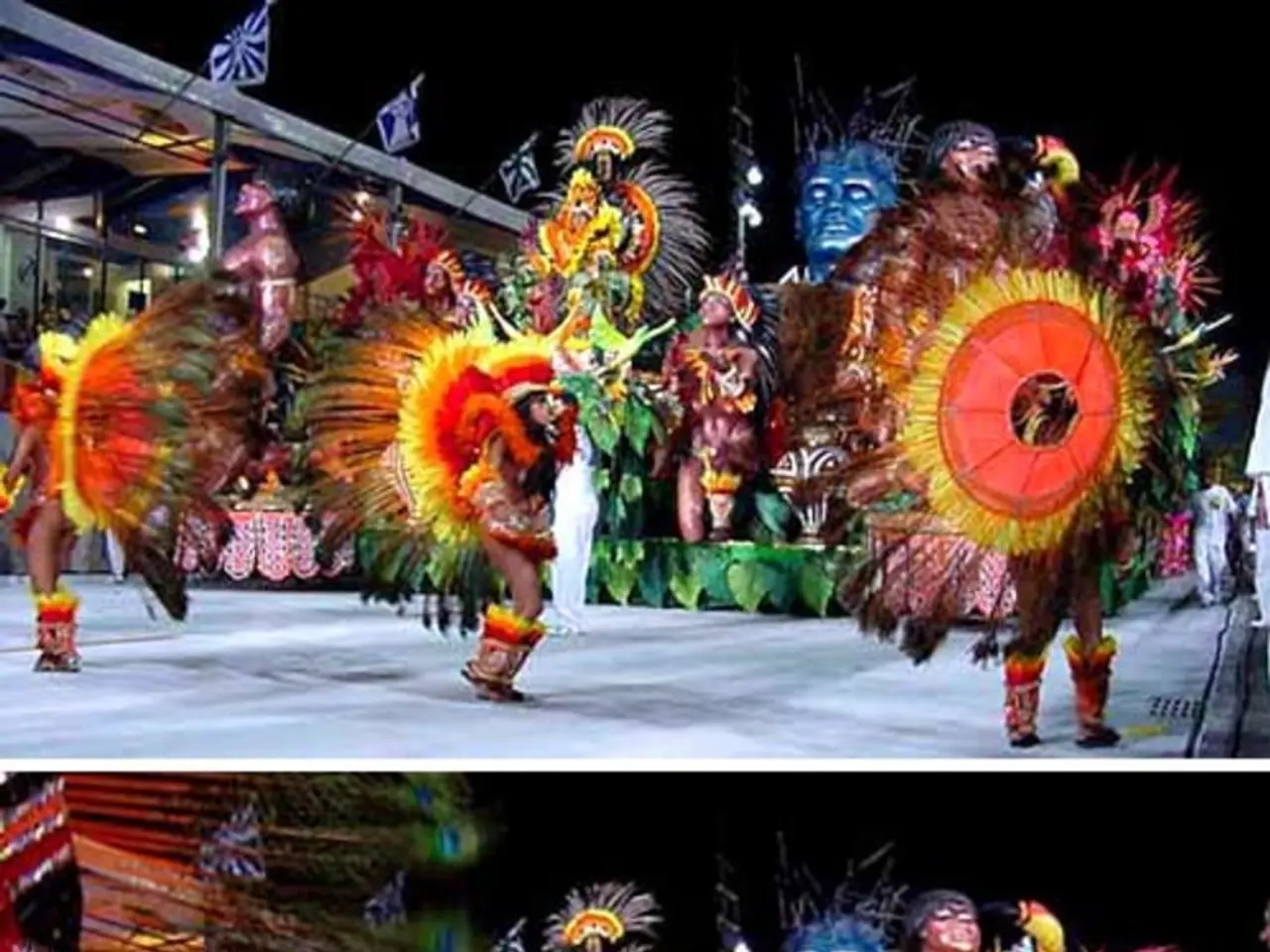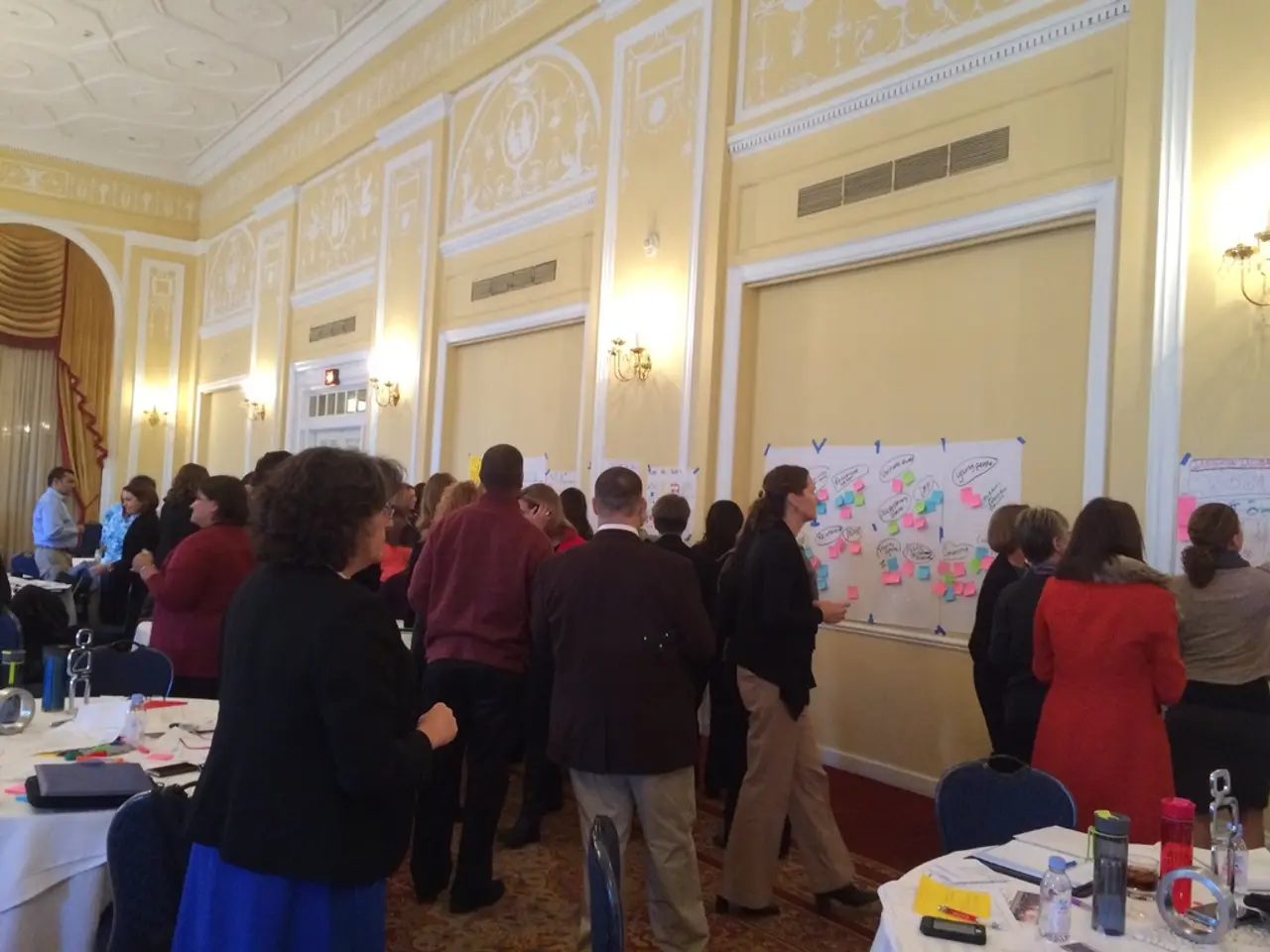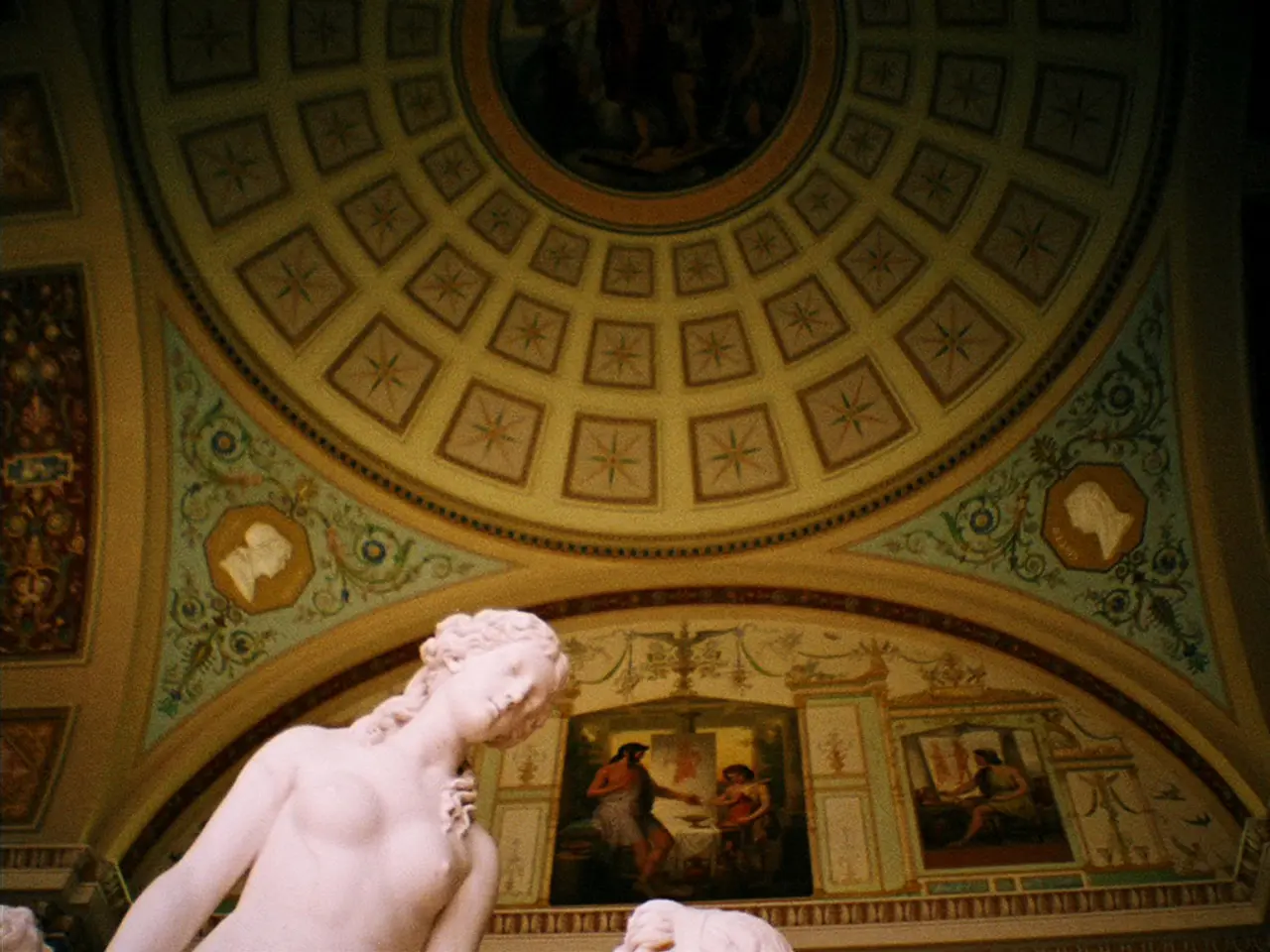Younger generations are more inclined towards classical music compared to their older counterparts.
Younger Audiences Embrace Classical Music Through Digital Engagement
A series of studies conducted by the Royal Philharmonic Orchestra between 2022 and 2025 has revealed a significant shift in the landscape of orchestral music, with a growing interest among younger audiences.
According to the reports, 65% of people under 35 listen to classical music regularly, compared to 57% of those aged over 55. This trend was particularly noticeable in the desire to attend orchestral concerts, with the studies indicating a rise in interest over the years 2018 to 2023.
The studies, which were conducted on a national scale involving data collected from 2,000 people, suggest that social media and technological innovation play a crucial role in engaging younger audiences in classical music.
Artists like Anna Lapwood, Sheku Kanneh-Mason, and TwoSet Violin have been instrumental in this transformation. They have leveraged platforms such as YouTube, Instagram, and TikTok to make classical music more accessible, relatable, and engaging for younger generations.
Anna Lapwood, a conductor and organist, uses social media to break down classical music into approachable, fun, and often humorous videos that resonate with younger viewers. Sheku Kanneh-Mason, a renowned cellist, has effectively engaged youth by sharing performances and behind-the-scenes glimpses via social media, helping demystify classical music and show its contemporary relevance.
TwoSet Violin, a duo known for blending classical music performance with humor and viral challenges, have significantly increased youth interest by making classical music content entertaining and community-driven.
The Royal Philharmonic Orchestra's 2022 and 2024 studies reflect this trend, underscoring that social media acts as a vital tool for expanding classical music's reach. Their research indicates that digital platforms help build inclusive communities and encourage participation, fostering a stronger connection between young audiences and the orchestral world.
This increasing digital engagement often complements traditional initiatives like youth orchestras and academies, which provide professional development and live performance opportunities for young musicians. Together, these efforts suggest that social media has become a transformative influence on the way younger audiences discover, consume, and appreciate classical music today.
In 2024, another study from the Royal Philharmonic Orchestra revealed that the number of people who would like to experience an orchestral concert rose from 79% in 2018 to 84%. This growth indicates a promising future for classical music as it continues to captivate and inspire younger generations.
[1] Classical Tahoe Academy: https://www.classicaltahoe.org/academy/ [3] National Youth Ensembles at Carnegie Hall: https://www.carnegiehall.org/Programs/National-Youth-Ensembles/Home
- The integration of social media and technological innovation into classical music has transformed it into a significant aspect of entertainment and lifestyle for younger audiences.
- Digital platforms serve as a crucial conduit for classical music, connecting younger generations with orchestral performances and fostering a sense of community, as demonstrated by the increasing interest in attending orchestral concerts.








